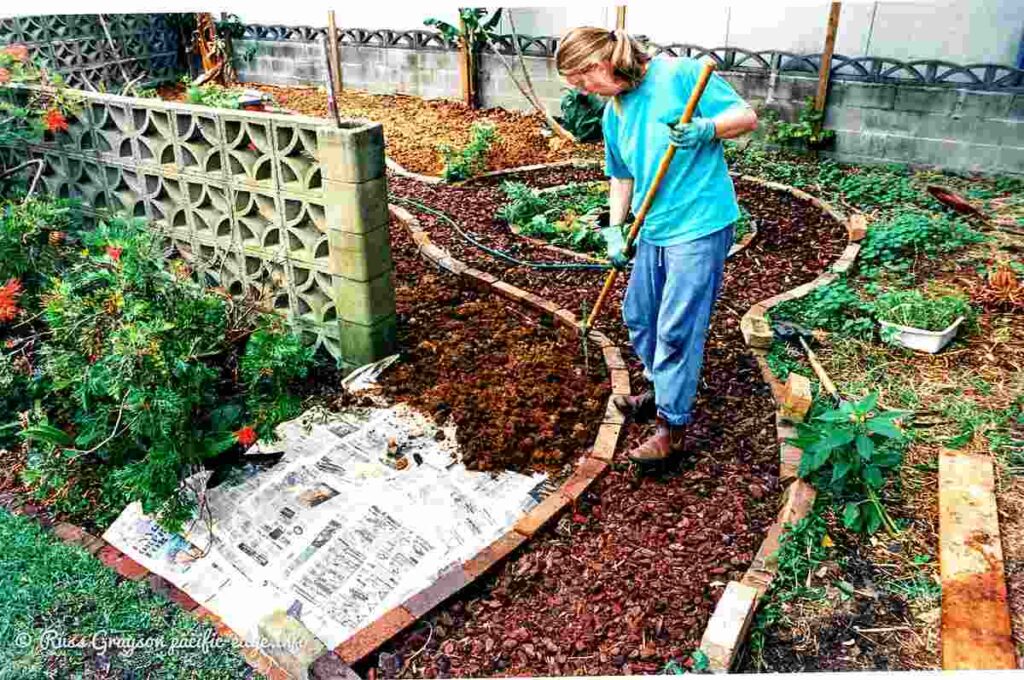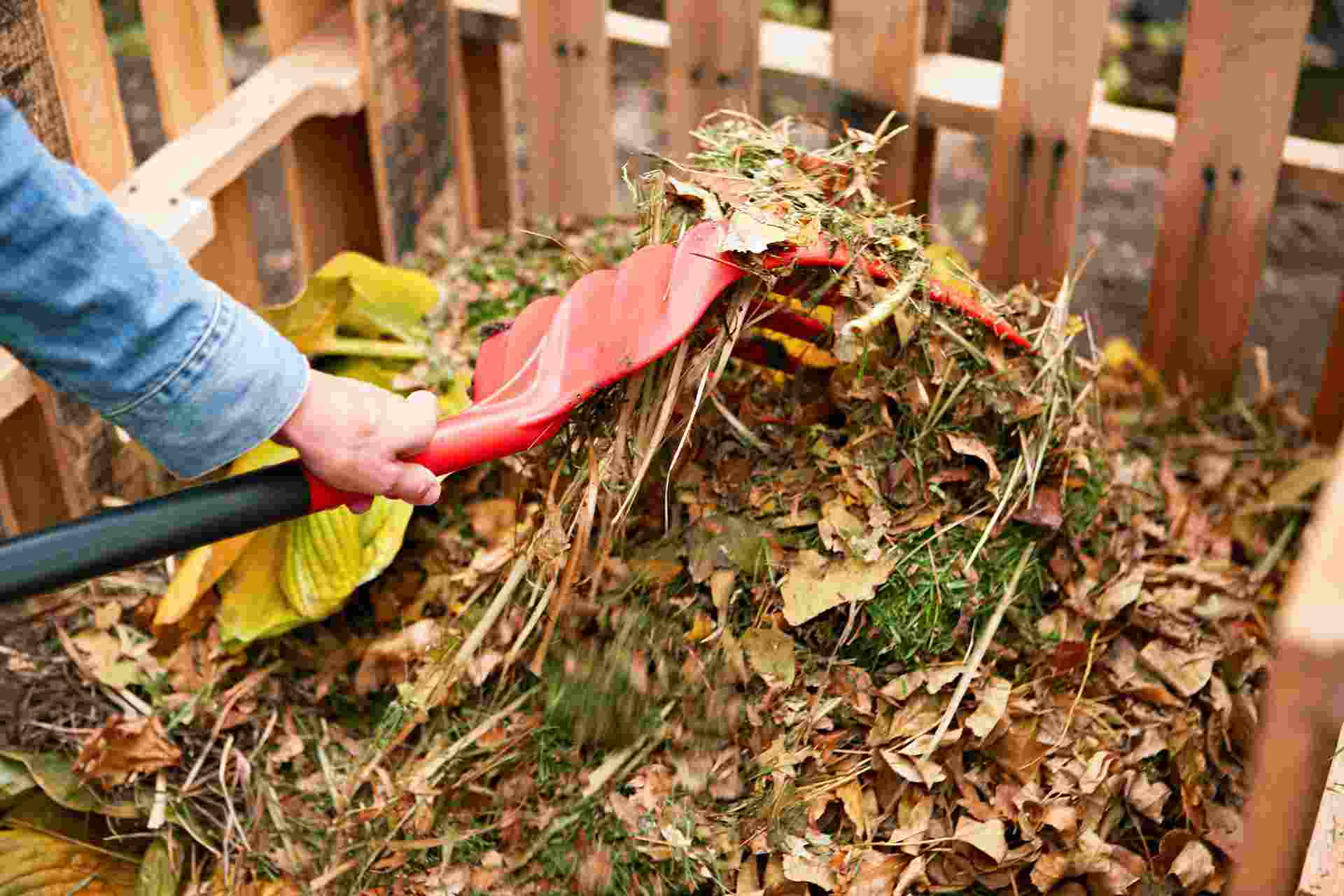In the heart of Michigan’s urban landscapes, a transformative movement is underway, where the fusion of urban gardening and innovative yard waste management practices is reshaping city dynamics. This synergy not only beautifies concrete jungles but also serves as a beacon for sustainable living. Michigan cities are witnessing a surge in community-driven initiatives that cultivate green spaces, fostering a connection between residents and nature. Simultaneously, cutting-edge yard waste management strategies are addressing environmental concerns. From composting initiatives to biodiversity-rich gardens, this holistic approach reflects a commitment to creating healthier, more resilient urban environments that prioritize both ecological well-being and community engagement. The emergence of urban gardening in Michigan cities goes beyond mere aesthetics, instilling a sense of shared responsibility and community collaboration. As residents actively participate in transforming neglected spaces into flourishing gardens, these endeavors become not just about cultivation but also about fostering social bonds and enhancing overall well-being. Moreover, the incorporation of innovative yard waste management practices highlights a commitment to environmental stewardship, turning green debris into valuable resources. As cities evolve, Michigan stands as a pioneer in sustainable urban development, where the harmonious coexistence of nature and city life is not just a vision but a thriving reality, creating vibrant, resilient, and eco-conscious communities.
Greening the Urban Landscape: Sustainable Solutions for Urban Gardening and Yard Waste Management in Michigan Cities
Embark on a journey of urban revitalization with A&B Junk, where the fusion of urban gardening and advanced yard waste management transforms Michigan cities into thriving, sustainable oases.

Growing Green Spaces: Urban Gardening Initiatives Transforming Michigan Cities
Urban gardening initiatives have become a transformative force in Michigan’s urban areas, breathing life into concrete jungles and creating vibrant green spaces. Citizens and community groups are increasingly embracing the concept of urban gardening, converting unused or neglected spaces into flourishing gardens. This movement not only beautifies the cityscape but also promotes a sense of community, as residents come together to cultivate shared green spaces. Michigan cities are witnessing a positive shift toward sustainability as these urban gardens contribute to local food production, foster a connection with nature, and mitigate the environmental impact of urbanization.
Cultivating Community: The Rise of Urban Gardens in Michigan’s Urban Landscape
The rise of urban gardens in Michigan reflects a larger trend of community-driven initiatives focused on sustainable living. These projects bring residents together to collectively create and maintain green spaces within the city. Beyond the physical benefits of increased greenery, urban gardening fosters a sense of community and shared responsibility. Residents not only grow fresh produce but also exchange knowledge, support each other in gardening endeavors, and build lasting connections. The cultivation of community through urban gardening is an integral aspect of Michigan’s evolving urban landscape, demonstrating the power of grassroots initiatives to enhance both the environment and the social fabric of cities.
Sustainable Harvest: Promoting Urban Agriculture for a Greener Michigan
Urban agriculture is playing a pivotal role in promoting sustainability across Michigan cities. From rooftop gardens to community plots, the emphasis is on cultivating food in an environmentally conscious manner. By integrating agriculture into urban spaces, Michigan residents are reducing their ecological footprint, embracing local food production, and contributing to a more sustainable future. This approach not only addresses food security concerns but also underscores the importance of self-sufficiency in the context of urban living.
From Concrete to Cultivation: Urban Gardening Reshaping Michigan’s Cityscapes
Urban gardening is reshaping the very fabric of Michigan’s cityscapes, turning once barren or underutilized areas into lush, green havens. The juxtaposition of concrete structures and vibrant gardens is a testament to the transformative power of community-driven initiatives. As Michigan cities evolve, the integration of urban gardening is not just an aesthetic enhancement but a fundamental shift in urban planning, promoting a harmonious coexistence between nature and the built environment. The visual impact of these cultivated spaces adds to the overall appeal of the city, enhancing the quality of life for its residents while contributing to the broader goal of sustainable urban development.
Yard Waste Revolution: Innovative Strategies for Managing Green Debris in Michigan Cities
In response to the growing importance of environmental stewardship, Michigan cities are undergoing a yard waste services revolution. Innovative strategies are being implemented to manage green debris sustainably, converting yard waste into valuable resources. Composting initiatives, for example, are diverting organic waste from landfills, enriching the soil, and contributing to a circular and regenerative system. This revolution not only addresses the challenge of yard waste management but also serves as a model for responsible and ecologically conscious urban planning.
Harvesting Hope: How Urban Gardens are Fostering Sustainability in Michigan Communities
Urban gardens in Michigan are not just about growing vegetables; they are cultivating hope and resilience within communities. These gardens serve as tangible symbols of sustainability, showcasing how small-scale actions can have far-reaching impacts. By engaging in sustainable practices, such as rainwater harvesting and organic gardening techniques, Michigan communities are not only contributing to environmental conservation but also inspiring a collective sense of hope for a greener and more sustainable future. The ripple effect of these efforts extends beyond the garden fences, influencing residents to adopt eco-friendly practices in their daily lives.
Bridging the Gap: Urban Gardening as a Catalyst for Community Engagement in Michigan
Urban gardening has emerged as a catalyst for community engagement in Michigan, bridging gaps between diverse groups of residents. These communal spaces foster dialogue and collaboration among people from various backgrounds, promoting social cohesion. As individuals work side by side in tending to the garden, they share knowledge, experiences, and a sense of pride in contributing to the well-being of their community. This social fabric strengthens as community members organize events, workshops, and celebrations centered around urban gardening, further solidifying the role of these green spaces as hubs of connection and mutual support.
Greening the Urban Jungle: Michigan Cities Embrace Yard Waste Management Solutions
Michigan cities are actively embracing solutions to tackle the challenges posed by yard waste within the urban jungle. Sustainable yard waste management practices, such as mulching and chipping, are being integrated into municipal strategies to reduce the environmental impact of green debris. The emphasis is not only on waste reduction but also on the responsible disposal of yard waste, diverting it away from landfills and promoting a circular economy. By implementing these solutions, Michigan cities are taking proactive steps towards creating cleaner, more ecologically balanced urban environments.
Blooms in the City: Enhancing Aesthetics and Biodiversity Through Urban Gardening in Michigan
The aesthetic transformation brought about by urban gardening in Michigan is accompanied by a simultaneous enhancement of biodiversity. As green spaces flourish, they attract a variety of plant and animal life, contributing to a more balanced urban ecosystem. The deliberate selection of native plants in urban gardens supports local biodiversity, providing habitat and food sources for insects and birds. The result is not only visually pleasing landscapes but also a reconnection with the natural world within the heart of Michigan cities.

Waste to Wealth: Sustainable Practices in Yard Waste Management for Michigan Urban Dwellers
Urban dwellers in Michigan are recognizing the potential wealth within their yard waste and adopting sustainable practices that turn waste into a valuable resource. Composting programs, community recycling initiatives, and educational campaigns are empowering residents to view yard waste as a source of organic matter that can enrich soil health. By embracing these sustainable practices, Michigan urban dwellers are not only contributing to a circular economy but also realizing the economic and environmental benefits of transforming what was once considered waste into a valuable asset for local agriculture and landscaping.
FAQs
Q: What is urban gardening, and how does it benefit Michigan cities?
A: Urban gardening involves cultivating plants in city environments. In Michigan, it enhances aesthetics, promotes community bonding, and supports local food production, contributing to a more sustainable and resilient urban landscape.
Q: How are Michigan cities innovatively managing yard waste?
A: Michigan cities employ innovative strategies like composting and mulching to manage yard waste sustainably. These methods reduce landfill contributions, enrich soil, and promote circular waste management.
Q: Why is community engagement crucial in urban gardening initiatives?
A: Community engagement fosters social cohesion in Michigan cities. Urban gardening brings residents together, creating shared spaces that encourage dialogue, collaboration, and a sense of collective responsibility.
Q: What role does biodiversity play in Michigan’s urban gardening scene?
A: Urban gardening enhances biodiversity by attracting native plants and wildlife, contributing to a more balanced urban ecosystem. This supports local flora and fauna, creating aesthetically pleasing and ecologically diverse city landscapes.
Q: How does urban gardening contribute to sustainable living in Michigan?
A: Urban gardening in Michigan promotes sustainable living by encouraging local food production, reducing environmental impact, and fostering a deeper connection between residents and their natural surroundings.
Conclusion
In conclusion, the integration of urban gardening and innovative yard waste management practices in Michigan cities represents a transformative paradigm, reshaping urban landscapes and fostering sustainable living. From the vibrant green spaces that breathe life into concrete jungles to the community-driven initiatives that cultivate not just gardens but robust social bonds, Michigan cities are at the forefront of a green revolution. These endeavors not only address environmental challenges but also contribute to a sense of community, resilience, and responsible urban living. As cities evolve, the synthesis of nature and urbanity in Michigan stands as a testament to the power of grassroots initiatives in creating healthier, more sustainable, and connected urban environments. Moreover, the yard waste management strategies implemented in Michigan showcase a commitment to ecological responsibility, turning green debris into valuable resources through composting and circular waste management. The intentional cultivation of biodiversity within urban gardens adds an extra layer of ecological richness to cityscapes, promoting a harmonious coexistence between the built environment and nature. The success of these initiatives relies heavily on community engagement, demonstrating that the benefits extend beyond mere environmental impact. Michigan’s embrace of waste-to-wealth practices and the integration of green spaces not only enhances the visual appeal of cities but also sets a precedent for sustainable urban development that prioritizes environmental stewardship and community well-being.




